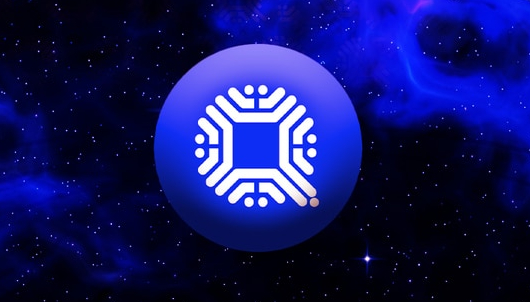-
 Bitcoin
Bitcoin $94,603.5212
0.54% -
 Ethereum
Ethereum $1,796.6490
-0.69% -
 Tether USDt
Tether USDt $1.0004
0.01% -
 XRP
XRP $2.3182
6.38% -
 BNB
BNB $604.7367
0.66% -
 Solana
Solana $151.7861
2.35% -
 USDC
USDC $1.0000
0.00% -
 Dogecoin
Dogecoin $0.1800
-0.97% -
 Cardano
Cardano $0.7161
2.48% -
 TRON
TRON $0.2464
-1.31% -
 Sui
Sui $3.7222
3.71% -
 Chainlink
Chainlink $14.8476
1.96% -
 Avalanche
Avalanche $22.0376
-1.33% -
 Stellar
Stellar $0.2883
1.16% -
 UNUS SED LEO
UNUS SED LEO $8.9990
-0.11% -
 Toncoin
Toncoin $3.2986
0.83% -
 Hedera
Hedera $0.1961
3.61% -
 Shiba Inu
Shiba Inu $0.0...01401
1.85% -
 Bitcoin Cash
Bitcoin Cash $350.9025
-0.26% -
 Polkadot
Polkadot $4.1994
1.69% -
 Litecoin
Litecoin $86.6374
0.35% -
 Hyperliquid
Hyperliquid $18.3504
4.49% -
 Dai
Dai $1.0001
0.01% -
 Bitget Token
Bitget Token $4.4019
0.42% -
 Monero
Monero $270.1988
18.62% -
 Ethena USDe
Ethena USDe $0.9996
0.00% -
 Pi
Pi $0.6122
-4.18% -
 Pepe
Pepe $0.0...09047
0.54% -
 Uniswap
Uniswap $5.5352
-3.34% -
 Aptos
Aptos $5.5481
0.60%
Is QTUM worth investing? Read about the future prospects of QTUM in one article
QTUM's unique features, including its combination of Bitcoin's security and Ethereum's flexibility, position it as a promising investment with potential for growth and adoption.
Oct 31, 2024 at 02:44 pm

Is QTUM Worth Investing? Exploring the Future Prospects of the Cryptocurrency
QTUM (pronounced "quantum") is a blockchain platform that combines the security of Bitcoin with the flexibility of Ethereum. It aims to bridge the gap between the two most popular cryptocurrencies by offering a platform that is both secure and scalable.
Unique Features of QTUM:
- Blockchain Maturity: QTUM leverages the mature Bitcoin blockchain as its underlying infrastructure, providing enhanced security and reliability.
- Smart Contract Functionality: Despite being built on Bitcoin, QTUM allows for the development and execution of smart contracts, unlocking a wide range of applications.
- Transaction Speed: QTUM utilizes the Proof-of-Stake (PoS) consensus mechanism, enabling faster transaction processing times compared to Bitcoin.
- Governance: QTUM employs a decentralized governance system, allowing token holders to participate in decision-making and shape the project's development.
Future Prospects of QTUM:
The future of QTUM appears promising due to several key factors:
- Growing Smart Contract Adoption: Smart contracts are gaining wider acceptance across industries, and QTUM's capabilities in this area position it well for growth.
- Increased Decentralization: QTUM's PoS consensus mechanism promotes decentralization and reduces the influence of any single party.
- Potential Partnerships: QTUM has established partnerships with various companies and institutions, expanding its reach and potential use cases.
- Community Support: QTUM boasts a dedicated and growing community, providing a supportive environment for the project's development.
Investment Considerations:
When considering investing in QTUM, it's essential to understand certain factors:
- Market Volatility: Cryptocurrency markets are inherently volatile, and QTUM's price can fluctuate significantly.
- Competition: QTUM faces competition from other blockchains, including Ethereum, Solana, and Cardano, which offer similar functionalities.
- Regulations: Regulatory uncertainties surrounding cryptocurrencies can impact QTUM's growth and adoption.
Conclusion:
QTUM presents a compelling investment proposition with its unique features and promising future prospects. Its combination of Bitcoin's security and Ethereum's flexibility, coupled with its growing adoption and decentralized governance, make it an attractive option for investors looking for alternative cryptocurrency investments. However, it's crucial to exercise caution and conduct thorough research before making any investment decisions, considering market volatility, competition, and regulatory factors.
Disclaimer:info@kdj.com
The information provided is not trading advice. kdj.com does not assume any responsibility for any investments made based on the information provided in this article. Cryptocurrencies are highly volatile and it is highly recommended that you invest with caution after thorough research!
If you believe that the content used on this website infringes your copyright, please contact us immediately (info@kdj.com) and we will delete it promptly.
- Monero (XMR) Surged Nearly 50%, Hitting $389, Its Highest Since May 2021.
- 2025-04-28 19:20:13
- President Donald Trump's Latest Cryptocurrency Venture Has Drawn Both Financial Gains and Ethical Scrutiny
- 2025-04-28 19:20:13
- Monero (XMR) Price Surges 50% to Trade Above $320, Outpacing Bitcoin's (BTC) Rally
- 2025-04-28 19:15:13
- Monero (XMR) Price Surges 40-50% to Trade Above $320, Marking a Three-Year High
- 2025-04-28 19:15:13
- Trump's $TRUMP Token Project Delays Insider Sales by 90 Days
- 2025-04-28 19:10:12
- PEPE Coin (PEPE) Price Prediction: Can It Hit $0.001?
- 2025-04-28 19:10:12
Related knowledge

What is Ethereum’s Slashing mechanism and how to punish malicious behavior?
Feb 20,2025 at 03:08am
Key PointsOverview of slashingDifferent types of slashing in EthereumIncentives and consequences of slashingIdentifying and reporting slashed validatorsOngoing discussions and potential improvementsEthereum's Slashing Mechanism: Punishing Malicious BehaviorEthereum's slashing mechanism is an essential tool for ensuring network security and punishing mal...

What is the verifier node of Ethereum and how to become a verifier?
Feb 19,2025 at 06:00pm
The Verifier Node of Ethereum: A Comprehensive GuideKey Points:What is a Verifier Node?How to Become a Verifier NodeResponsibilities and Rewards of a Verifier NodeMinimum Requirements for Becoming a Verifier NodePotential Difficulties in Running a Verifier Node1. What is a Verifier Node?A Verifier Node is an independent entity on the Ethereum network th...

What is Ethereum’s staking, and how to participate and earn money?
Feb 19,2025 at 04:37pm
Key Points:Understanding Ethereum's Staking MechanismSteps to Participate in StakingBenefits and Rewards of StakingSecurity and Risk ConsiderationsTechnical Requirements and Hardware OptionsPotential Challenges and Troubleshooting TipsFAQs on Ethereum StakingWhat is Ethereum's Staking?Proof-of-Stake (PoS) is a consensus mechanism used in blockchain netw...

What is Ethereum’s DAO (Decentralized Autonomous Organization) and how does it work?
Feb 20,2025 at 03:12am
Key PointsDefinition and Structure of a DAOGovernance and Decision-Making in DAOsBenefits and Use Cases of DAOsChallenges and Limitations of DAOsWhat is Ethereum's DAO (Decentralized Autonomous Organization) and How Does It Work?Definition and Structure of a DAOA Decentralized Autonomous Organization (DAO) is an innovative governance and management fram...

What is Ethereum's multi-signature wallet and how to improve security?
Feb 20,2025 at 02:18pm
Key Points:Understanding the Concept of a Multi-Signature WalletBenefits and Drawbacks of Multisig WalletsRequirements for Setting Up a Multisig WalletStep-by-Step Guide to Generating a Multisig WalletImplementing Strategies for Enhanced Security1. Understanding the Concept of a Multi-Signature WalletA multi-signature (multisig) wallet in the Ethereum e...

What is Ethereum's oracle and how to provide data for smart contracts?
Feb 21,2025 at 01:30am
Key Points:Understanding the concept of oracles in EthereumExploring different types of oraclesDetailed guide on how to provide data for smart contractsAddressing potential challenges and considerationsWhat is Ethereum's Oracle?Oracles are crucial components in the Ethereum ecosystem, enabling smart contracts to access real-world data and off-chain even...

What is Ethereum’s Slashing mechanism and how to punish malicious behavior?
Feb 20,2025 at 03:08am
Key PointsOverview of slashingDifferent types of slashing in EthereumIncentives and consequences of slashingIdentifying and reporting slashed validatorsOngoing discussions and potential improvementsEthereum's Slashing Mechanism: Punishing Malicious BehaviorEthereum's slashing mechanism is an essential tool for ensuring network security and punishing mal...

What is the verifier node of Ethereum and how to become a verifier?
Feb 19,2025 at 06:00pm
The Verifier Node of Ethereum: A Comprehensive GuideKey Points:What is a Verifier Node?How to Become a Verifier NodeResponsibilities and Rewards of a Verifier NodeMinimum Requirements for Becoming a Verifier NodePotential Difficulties in Running a Verifier Node1. What is a Verifier Node?A Verifier Node is an independent entity on the Ethereum network th...

What is Ethereum’s staking, and how to participate and earn money?
Feb 19,2025 at 04:37pm
Key Points:Understanding Ethereum's Staking MechanismSteps to Participate in StakingBenefits and Rewards of StakingSecurity and Risk ConsiderationsTechnical Requirements and Hardware OptionsPotential Challenges and Troubleshooting TipsFAQs on Ethereum StakingWhat is Ethereum's Staking?Proof-of-Stake (PoS) is a consensus mechanism used in blockchain netw...

What is Ethereum’s DAO (Decentralized Autonomous Organization) and how does it work?
Feb 20,2025 at 03:12am
Key PointsDefinition and Structure of a DAOGovernance and Decision-Making in DAOsBenefits and Use Cases of DAOsChallenges and Limitations of DAOsWhat is Ethereum's DAO (Decentralized Autonomous Organization) and How Does It Work?Definition and Structure of a DAOA Decentralized Autonomous Organization (DAO) is an innovative governance and management fram...

What is Ethereum's multi-signature wallet and how to improve security?
Feb 20,2025 at 02:18pm
Key Points:Understanding the Concept of a Multi-Signature WalletBenefits and Drawbacks of Multisig WalletsRequirements for Setting Up a Multisig WalletStep-by-Step Guide to Generating a Multisig WalletImplementing Strategies for Enhanced Security1. Understanding the Concept of a Multi-Signature WalletA multi-signature (multisig) wallet in the Ethereum e...

What is Ethereum's oracle and how to provide data for smart contracts?
Feb 21,2025 at 01:30am
Key Points:Understanding the concept of oracles in EthereumExploring different types of oraclesDetailed guide on how to provide data for smart contractsAddressing potential challenges and considerationsWhat is Ethereum's Oracle?Oracles are crucial components in the Ethereum ecosystem, enabling smart contracts to access real-world data and off-chain even...
See all articles





















































































